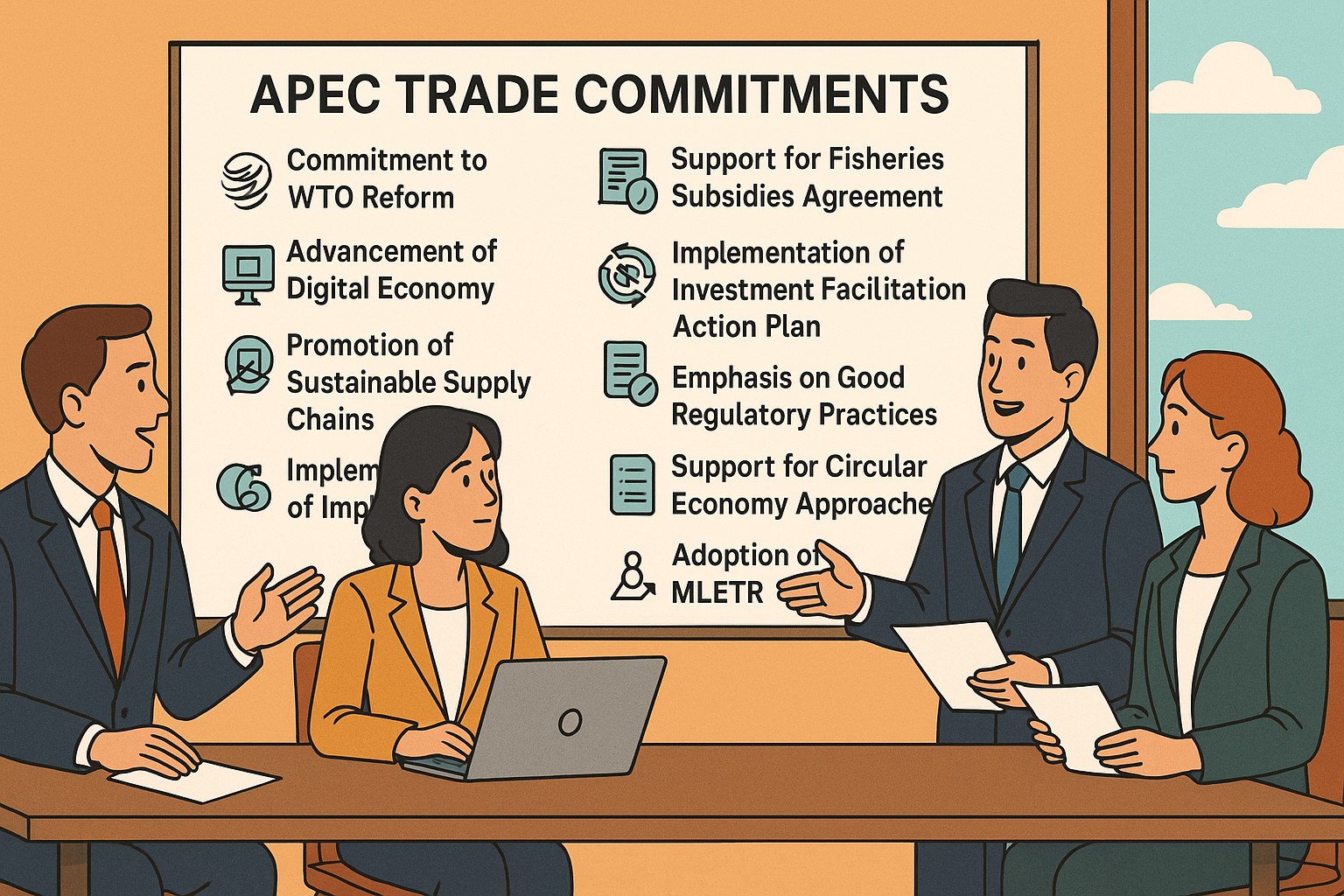
The 2025 APEC Ministers Responsible for Trade Meeting concluded in Jeju, Republic of Korea, on May 16, 2025, with a joint statement outlining significant decisions aimed at fostering regional economic resilience and cooperation.
Key Decisions:
- Commitment to WTO Reform: Ministers acknowledged the importance of the World Trade Organization (WTO) in advancing global trade and emphasized the need for meaningful and comprehensive reforms to enhance its functions and relevance in the current global landscape.
- Support for Fisheries Subsidies Agreement: Sixteen APEC economies have accepted the WTO Agreement on Fisheries Subsidies. Ministers called on the remaining economies to complete their domestic procedures and encouraged all WTO members to conclude negotiations on additional disciplines promptly.
- Advancement of Digital Economy: Ministers reaffirmed their commitment to ensuring that the benefits of digital transformation are accessible to all, including by bridging digital divides and creating a safer digital ecosystem. They recognized the role of digitalization in driving innovation, productivity, and economic growth across the region.
- Promotion of Sustainable Supply Chains: Acknowledging the challenges faced by global supply chains, ministers supported efforts to ensure that supply chain issues continue to be discussed within APEC to enhance resilience for sustainable economic growth across the region.
- Implementation of Investment Facilitation Action Plan: Ministers welcomed the updated Investment Facilitation Action Plan (IFAP) to support the implementation of the Aotearoa Plan of Action and encouraged officials to develop a work program to guide its implementation.
- Emphasis on Good Regulatory Practices: Ministers emphasized APEC’s role in promoting structural reforms to increase economic growth and reaffirmed the value of Good Regulatory Practices (GRP) in fostering transparency, predictability, and efficiency in the regulatory environment.
- Support for Circular Economy Approaches: Recognizing the importance of the Bangkok Goals in promoting cooperation to advance circular economy approaches, ministers welcomed the process underway to review the Reference List of Environmental and Environmentally Related Services and encouraged discussions on fostering trade in these services.
- Adoption of Model Law on Electronic Transferable Records (MLETR): Ministers endorsed the importance of the Model Law on Electronic Transferable Records (MLETR) to facilitate the digitalization of trade documents. They recognized MLETR as a key tool to enhance cross-border trade efficiency by enabling the legal use of electronic transferable records, such as electronic bills of lading, thereby promoting seamless and secure digital trade across the APEC region.
These decisions reflect APEC’s commitment to addressing contemporary trade issues, fostering new ideas, facilitating economic growth, and building momentum toward multilateral outcomes.
Summary by DigitalTrade4.EU
